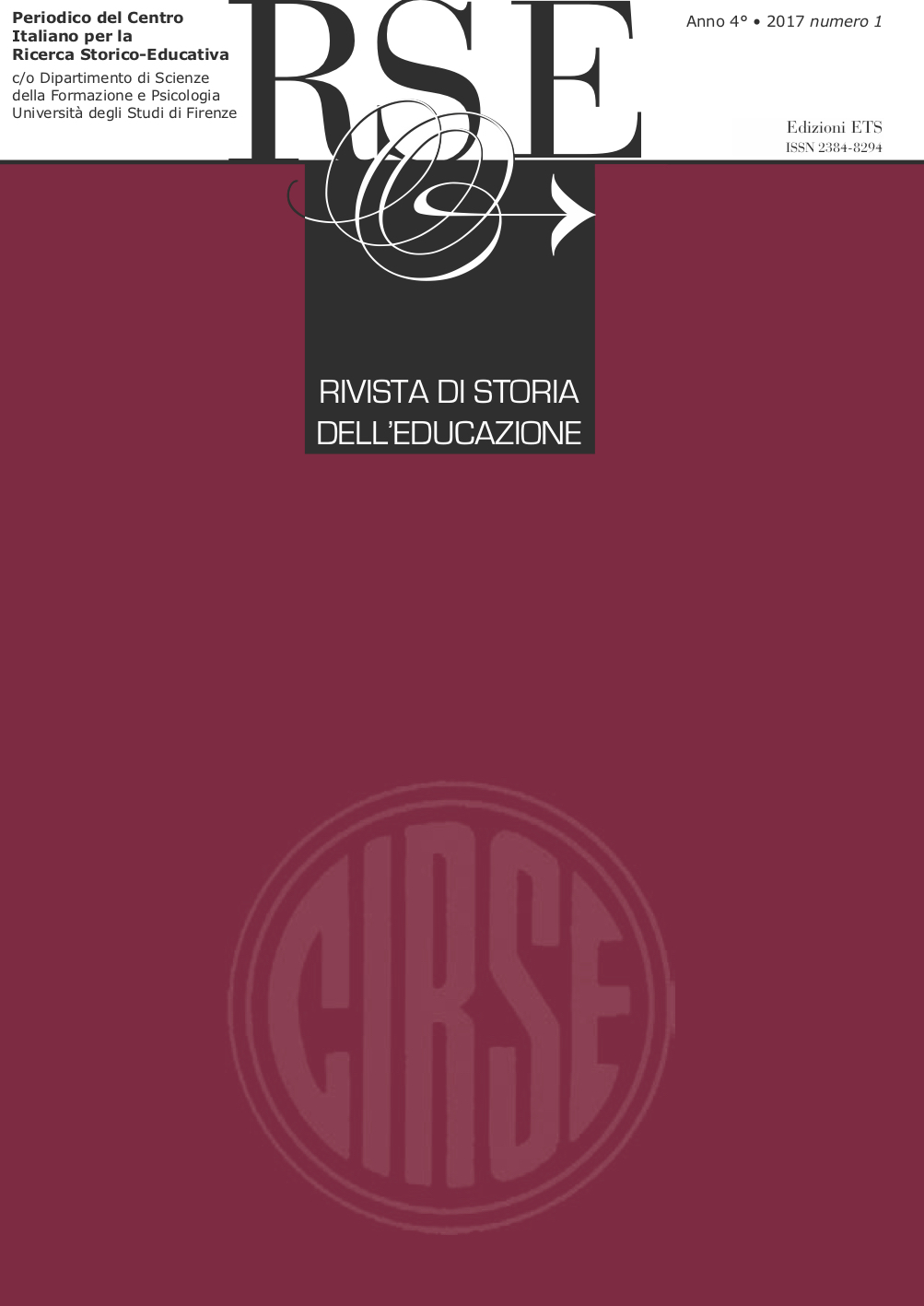Published 2018-06-09
Keywords
- primary school teachers; prizes and honors; teacher evaluation; teaching practices
How to Cite
Abstract
This paper explores the figure of the Italian schoolteacher in the period spanning the late nineteenth and early twentieth centuries through the personal and professional life of the Piedmont schoolteacher Elvira Bono. The rich and varied material, consisting of both handwritten and printed documents, left by Bono and held in the historical archives of the city of Turin, allows us on the one hand to reconstruct teacher training paths and procedures for the recruitment and career progression of teaching staff, and on the other to learn about the procedures and criteria used to evaluate teachers, an area as yet little explored in the recent literature on school teaching in the nineteenth and twentieth centuries. Annual reports, teaching programs and textbooks also offer key insights into the teaching methods and practices of the period. Of key interest is the series of national and local awards received by Elvira Bono during her forty years’ service as a teacher: while the guidelines for the awarding of these prizes and diplomas of merit reflect the political class’s vision of the ideal characteristics and role of the teacher, the documentation produced by the candidate offers a realistic account of the life of Turin schoolteachers, who – despite their own situation of economic insecurity – devoted themselves with an enterprising and self-sacrificing spirit to the education and betterment of the working classes, both in the classroom and beyond.
Of key interest is the series of national and local awards received by Elvira Bono during her forty years’ service as a teacher: while the guidelines for the awarding of these prizes and diplomas of merit reflect the political class’s vision of the ideal characteristics and role of the teacher, the documentation produced by the candidate offers a realistic account of the life of Turin schoolteachers, who – despite their own situation of economic insecurity – devoted themselves with an enterprising and self-sacrificing spirit to the education and betterment of the working classes, both in the classroom and beyond.

